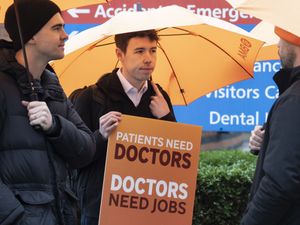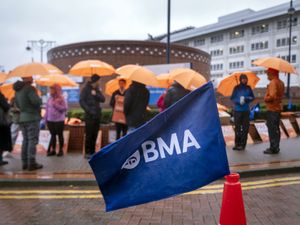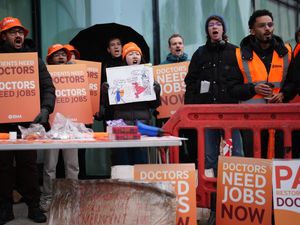December worst month for ambulance handovers – but January has seen improvement
December was the worst month ever for ambulance hospital handover delays with 48,000 hours lost across the West Midlands.
Despite the bleak picture ambulance bosses have heralded positive news with January already seeing significant improvement.
The situation, which has been an ongoing concern at hospitals across the region throughout the last 12 months, was discussed at today's meeting of West Midland's Ambulance Service's trust board.
The situation is key to the ambulance service's ability to respond to calls – with its response times frequently affected by the lack of crews available to answer fresh emergencies.
The board was also told of the most extreme cases.
During December for the most serious calls – Category One, which are life threatening injuries and illnesses, such as cardiac arrest – a patient in the Telford area waited a total of three hours and 24 minutes for a response.
The second longest was two hours 53 minutes in the Walsall area.
The target for a response on Category One calls is that 90 per cent are reached within 15 minutes.
In Category Two, for instances such as heart attacks, where the target is 90 per cent within 40 minutes, the longest wait was 43 hours and 31 minutes, again in the Walsall area.
The longest in Shropshire was 22 hours and 29 minutes.
For the non-life threatening Category Three calls, the longest December wait across the trust was 79 hours and 55 minutes, in the Worcester area. The target is for 90 per cent of calls to be answered in 120 minutes.
Mark Docherty, the trust's Director of Nursing and Clinical Commissioning, said that although the examples were the very worst cases experienced, it was important to recognise that they were still instances where patients had faced very long waits for a response.
Mr Docherty said the December position on lost hours was "worrying", adding that it was month ever.
He said: "We were approaching 50,000 lost hours and it causes massive problems when so much of our operational resource is lost."
The figures show that during December 10,135 patients waited in the back of an ambulance at a hospital in the West Midlands for more than an hour.
Mr Docherty spoke of the human cost of handover delays, but also raised the financial cost. He said that the hours lost across December equated to a cost of £8.2m.
He said: "Not only is it a loss of service, that people can't use it to respond to patients when they need it, but the financial loss is significant as well."
Despite the difficulties faced throughout December, Mr Docherty said this month had shown improvement – to the extent that if it continues the potential risk of handover delays may be downgraded on the trust's internal risk rating.
He told the board: "The position for January has significantly changed by the way of lost hours in that the handover position has improved. We do not fully understand the reason but it has improved.
"If the position holds as it currently is we may be looking to reduce the risk score from 25, but we are mindful we are not far away from the worst month we have ever had so we don't want to celebrate prematurely on the issue."
Professor Ian Cumming, the chair of the board, welcomed the prospect of improvement.
He said: "Things are looking a bit better but I am almost loathe to say that, but let's hope things do continue to improve into the new year."




